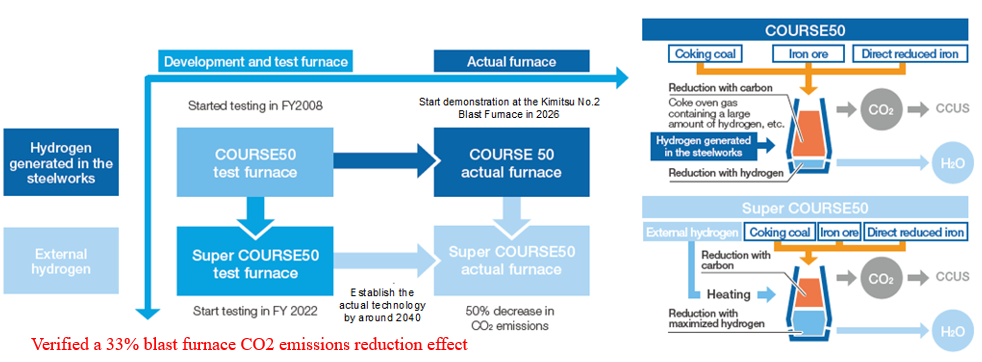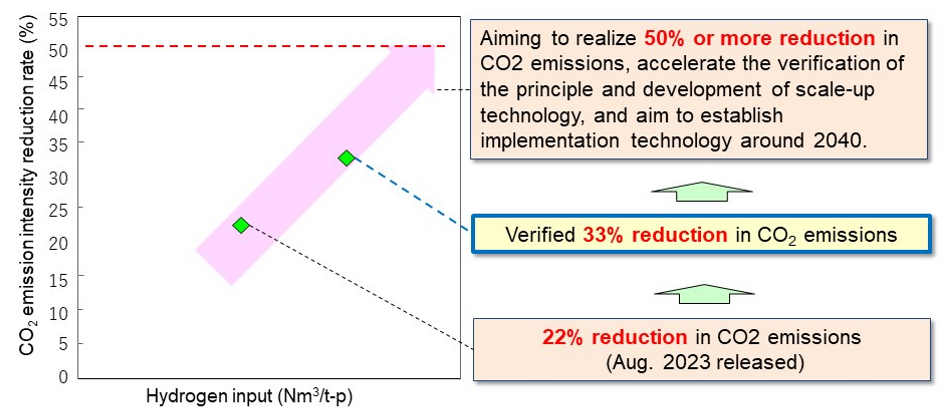

Feb. 06, 2024
Nippon Steel Corporation
Nippon Steel Corporation (hereafter “Nippon Steel”) has been conducting
development tests of Super COURSE50, a technology that uses heated hydrogen to reduce CO2
emissions, in the test furnace (inner volume 12 m3) at the East Nippon Works Kimitsu Area since
May 2022. So far, Nippon Steel has made steady progress in its development of this technology in terms of
verifying the reduction in CO2 emissions at 22% from the blast furnace itself. During tests
conducted from November to December 2023, Nippon Steel verified that they had achieved the world’s
highest level of 33% reduction in CO2 emissions from the blast furnace. These tests verified
the blast furnace CO2 emissions reduction effect while maintaining a heat balance inside the
blast furnace using heated hydrogen when increasing hydrogen reduction (endothermic reaction) instead of
carbon reduction of iron oxide (iron ore). Nippon Steel will proceed with demonstration tests and work on
promptly establishing the Super COURSE50 technology (to reduce CO2 emissions by 50% or more)
for large-scale blast furnaces.
This project was adopted as one of the Green Innovation Fund projects under New Energy and Industrial
Technology Development Organization (NEDO) in January 2022, after which it was decided to adopt the
expansion of the fund in November 2023. A consortium has been formed to make progress in developing this
project by the following four organizations: Nippon Steel Corporation, JFE Steel Corporation, Kobe Steel,
Ltd., and The Japan Research and Development Center for Metals.
In the “Nippon Steel Carbon Neutral Vision 2050” announced in March 2021, Nippon Steel aims to
achieve carbon neutrality using the following three super innovative technologies: (1) hydrogen injection
into blast furnaces using this technology in addition to (2) high-grade steel production in large size EAF
and (3) hydrogen direct reduction of iron.
Nippon Steel always pursues the world's best technology and manufacturing capabilities and will continue
to contribute to the development of society through activities that are in line with the Sustainable
Development Goals (SDGs) adopted by the United Nations ("Affordable and Clean Energy" and
"Industry, Innovation and Infrastructure").

